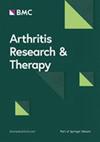在接受利妥昔单抗治疗的类风湿性关节炎患者中,对SARS-CoV- 2疫苗接种的t细胞反应持续超过6个月
IF 4.9
2区 医学
Q1 Medicine
引用次数: 0
摘要
在接受利妥昔单抗(RTX)治疗的类风湿性关节炎(RA)患者中,接种SARS-CoV- 2疫苗后观察到的刺突蛋白特异性体液反应降低。然而,当接种疫苗后立即分析时,刺突特异性t细胞免疫反应似乎被保留了下来。特异性T细胞长期存在的可能性尚未得到充分研究,这可能是决定何时进行重新接种的有用决策工具。本研究旨在评估接受RTX治疗的RA患者在最后一次接种SARS-CoV- 2疫苗或感染(在本研究中称为“SARS-CoV- 2增强”)后t细胞介导的免疫的持久性。研究人员还探讨了影响免疫系统的临床和生物学参数。我们的观察性研究队列包括51例接受RTX治疗的RA患者和24例接受其他疾病改善抗风湿药物(DMARDs)治疗的RA患者,这些患者接受了至少一剂SARS-CoV- 2mrna疫苗。通过流式细胞术评估t细胞免疫反应,重点关注最后一次SARS-CoV- 2增强后3至18个月间抗原特异性t细胞特征。通过检测CD69、CD154、CD137和CD107a表面表达来评估t细胞活化。正如预期的那样,即使接受RTX治疗的RA患者(RA RTX)的平均抗体滴度低于接受RTX治疗的RA患者(p = 0.034),所有患者都表现出CD4 +和CD8 + t细胞尖峰蛋白特异性反应,RA RTX患者的CD8 + t细胞尖峰特异性反应更大(p < 0.001)。本研究的主要发现是,在最后一次SARS-CoV- 2增强后,t细胞反应显著持续了18个月,并且在接受RTX治疗和未接受RTX治疗的患者之间,COVID- 19严重程度没有差异(p = 0.770)。即使RTX治疗在RA患者中阻止了SARS-CoV- 2疫苗依赖性抗体反应,但在RA RTX患者中发现了一种强刺突蛋白特异性t细胞介导的反应,该反应在最后一次SARS-CoV- 2增强后持续长达18个月。就个性化医疗而言,分析刺突蛋白特异性t细胞反应可能是决定何时需要重新接种疫苗的一个有价值的策略。本文章由计算机程序翻译,如有差异,请以英文原文为准。
The T-cell response to SARS-CoV- 2 vaccination persists beyond six months in rheumatoid arthritis patients treated with rituximab
The spike protein-specific humoral response observed after SARS-CoV- 2 vaccination is decreased in rheumatoid arthritis (RA) patients treated with rituximab (RTX). However, when analyzed immediately after vaccination, the spike-specific T-cell immune response appears to be preserved. The possible persistence of specific T cells over the long term is underexplored and could be a useful decision-making tool for deciding when to perform revaccination. This study aimed to assess the persistence of T-cell-mediated immunity after the last SARS-CoV- 2 vaccination or infection (named “SARS-CoV- 2 boost” in this study) in RA patients treated with RTX. Clinical and biological parameters that can influence this immune system were also explored. Our observational study cohort included 51 RA patients treated with RTX and 24 RA patients treated with other disease-modifying antirheumatic drugs (DMARDs) who had received at least one dose of the SARS-CoV- 2 mRNA vaccine. The T-cell immune response was assessed by flow cytometry, which focused on antigen-specific T-cell characterization between 3 and 18 months after the last SARS-CoV- 2 boost. T-cell activation was assessed by measuring CD69, CD154, CD137 and CD107a surface expression. As expected, even if a lower mean antibody titer was measured in RA patients receiving RTX (RA RTX) than in RA patients treated with therapies other than RTX (p = 0.034), all patients exhibited CD4 + and CD8 + T-cell spike protein-specific responses, with an even greater spike-specific CD8 + T-cell response in RA RTX patients (p < 0.001). The main finding of our study was that the T-cell response remarkably persisted up to 18 months after the last SARS-CoV- 2 boost and no difference was found in COVID- 19 severity between RTX- and non-RTX-treated patients (p = 0.770). Even if RTX treatment prevented the SARS-CoV- 2 vaccine-dependent antibody response in RA patients, a strong spike protein-specific T-cell-mediated response that persisted for up to 18 months after the last SARS-CoV- 2 boost was found in RA RTX patients. With respect to personalized medicine, analyzing the spike protein-specific T-cell response might be a valuable strategy for deciding when revaccination is necessary.
求助全文
通过发布文献求助,成功后即可免费获取论文全文。
去求助
来源期刊

Arthritis Research & Therapy
RHEUMATOLOGY-
CiteScore
8.60
自引率
2.00%
发文量
261
审稿时长
14 weeks
期刊介绍:
Established in 1999, Arthritis Research and Therapy is an international, open access, peer-reviewed journal, publishing original articles in the area of musculoskeletal research and therapy as well as, reviews, commentaries and reports. A major focus of the journal is on the immunologic processes leading to inflammation, damage and repair as they relate to autoimmune rheumatic and musculoskeletal conditions, and which inform the translation of this knowledge into advances in clinical care. Original basic, translational and clinical research is considered for publication along with results of early and late phase therapeutic trials, especially as they pertain to the underpinning science that informs clinical observations in interventional studies.
 求助内容:
求助内容: 应助结果提醒方式:
应助结果提醒方式:


